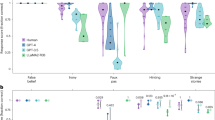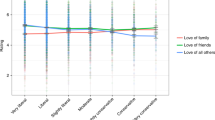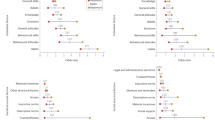Abstract
THE relative fields of physics and metaphysics, and the relation of theory or speculation to experiment in the pursuit of natural knowledge, have been the subject of several contributions to NATURE in recent months. In May of last year, under the title of “Modern Aristotelianism”, Prof. H. Dingle presented Aristotle and Galileo as examples of opposing schools of thought in a discussion in which the main question raised was “whether the foundation of science shall be observation or invention”. A month later, NATURE published a special Supplement containing communications from many leading scientific workers on the desirable balance to be maintained between observational methods and deduction by pure reasoning from speculative assumptions. One aspect of this wide subject was developed further in a discourse on “Science and the Unobservable” delivered by Prof. Dingle at the Royal Institution and published as a Supplement to NATURE of January 1 of this year ; and this was followed by two articles by Dr. Harold Jeffreys on “Science, Logic and Philosophy” in the issues of April 16 and 23, dealing with relationships between what is understood as idealism and realism. A week later, in an article entitled “The Pragmatic and the Dogmatic Spirit in Physics”, Prof. J. Stark attempted to divide physics into two groups or tendencies ; and at the same time made an unpardonable attack on the Jewish people in general and Einstein in particular. The article was based upon a communication made by Prof. Stark to Das Schwarze Korps in connexion with the movement to purge German science of Jewish influence and was contributed to NATURE by invitation of the Editor in order to obtain an authoritative statement from Germany upon what this influence was supposed to signify.
This is a preview of subscription content, access via your institution
Access options
Subscribe to this journal
Receive 51 print issues and online access
$199.00 per year
only $3.90 per issue
Buy this article
- Purchase on Springer Link
- Instant access to full article PDF
Prices may be subject to local taxes which are calculated during checkout
Similar content being viewed by others
References
See also Prof. C. G. Darwin's presidential address to Section A (Mathematics and Physical Science) of the British Association, delivered at Cambridge ("The Advancement of Science, 1938." London: Burlington House.)
Rights and permissions
About this article
Cite this article
EVE, A. Foundations of Physics. Nature 142, 857–859 (1938). https://doi.org/10.1038/142857a0
Published:
Issue Date:
DOI: https://doi.org/10.1038/142857a0
Comments
By submitting a comment you agree to abide by our Terms and Community Guidelines. If you find something abusive or that does not comply with our terms or guidelines please flag it as inappropriate.



